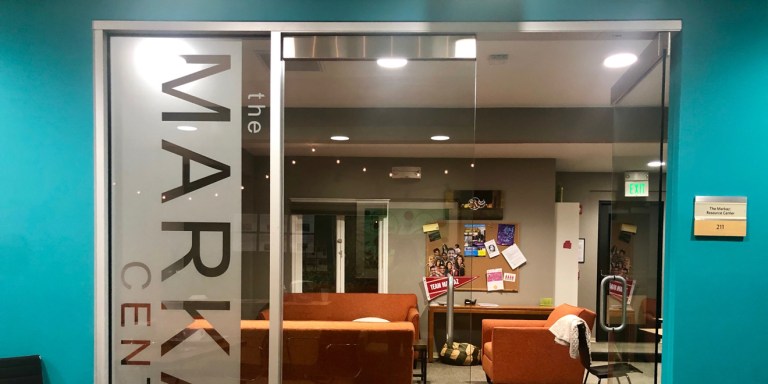The Markaz held an anti-Islamophobia workshop for “allied students” on Wednesday, describing the ways microaggressions and tokenism manifest at Stanford.
Wednesday’s workshop was the most recent in a series that began in August. Michael Mohsen, who developed the series, is a fourth-year Ph.D. candidate in chemistry and a Graduate Student Educator at the Markaz, which also holds anti-Islamophobia workshops for staff members and for the Muslim community.
On Wednesday, Mohsen asked workshop participants ranging from freshmen to Ph.D. students to consider their familiarity with Islam and their interactions with the Muslim community. Following feedback from multiple information sessions with the Muslim community, the workshop included education about the fundamental principles of Islam and the “spectrum of experience for Muslim students.”
“In general, in our education system, people don’t learn much about Islam, unless they’ve sought that information out for themselves,” Mohsen said.
Although the workshop series’ goal is to spread awareness about Islamophobia, the first workshops included less information about bias against Muslims, Mohsen said. Originally, Mohsen assumed that workshop participants would know what Islamophobia is, an assumption that has since changed.
“I’ve tried to be more clear about what Islamophobia is and the ways that it manifests itself and also the ways that it affects people,” Mohsen said.
Workshop participant Kory Gaines ’21 found the workshop successful in its goal of spreading awareness of Islamophobia.
“It’s a good event to gain knowledge if you’re totally ignorant or already know [about Islam],” they said. “[Mohsen] did a really good job.”
Mohsen said the Markaz aims to hold one or two trainings every quarter.
While Mohsen’s workshop focused on microaggressions and tokenism, Associate Professor of Law at the University of Detroit Mercy School of Law Khaled Beydoun, who studies Islamophobia, wrote in an email to The Daily that hate crimes — which have “escalated during the time of Trump” — are other ways in which Islamophobia may come to fruition on college campuses.
“Next, you have the emergence and emboldening of alt-right elements and sympathizers, who frame Islam as unassimilable with American society and see Muslims as pariahs,” Beydoun wrote.
Beydoun applauded the Markaz’s workshops, adding that legislative action also needs to occur in order to more fully combat Islamophobia.
“As a law professor, I’m keen that the law and formal policy is the very heartbeat of Islamophobia,” he wrote. “Workshops, perhaps, are a critical step in carrying forward the broader educational campaign that may lead to bringing down these laws, and policies that follow in their footsteps.”
Contact Michael Espinosa at mesp2021 ‘at’ stanford.edu.
